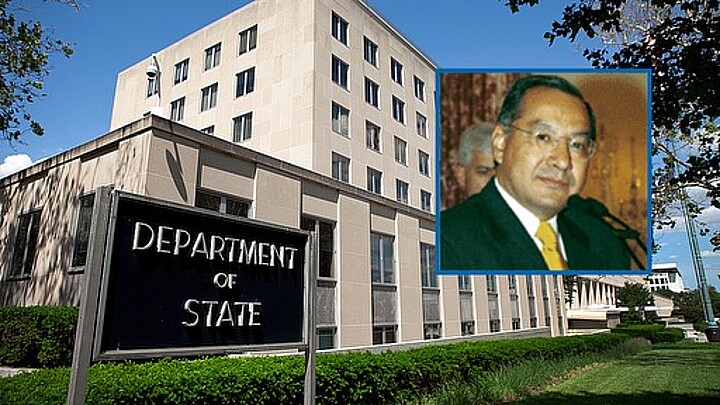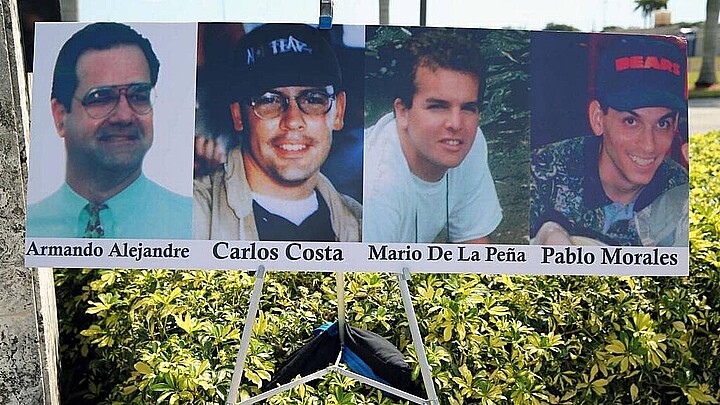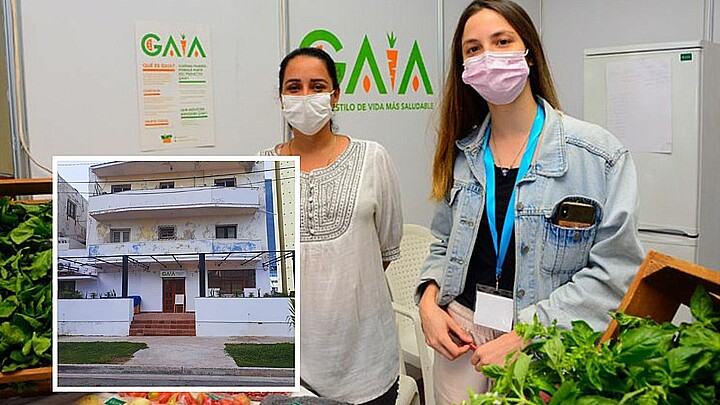Crime
Havana cheers release of convicted Cuban spy Ana Belén Montes, now on probation after 20-year prison sentence
Some doubt Montes will try to reconnect with Cuban intelligence services since she is on supervised release and under watch by the U.S. government, but regime sponsored organizations are already sending her subtle messages of support on the Internet
January 9, 2023 10:10am
Updated: January 9, 2023 10:11am
The Federation of Cuban Women, a communist organization established in 1960 by Fidel Castro’s new revolutionary government is rallying support and celebration for the release of convicted Cuban spy Ana Belén Montes, who was conditionally freed from U.S. custody on Sunday after a 20-year prison sentence that transitioned to a five-year probationary period.
The organization tweeted that “it celebrates the life and resistance of Ana Belén Montes, an unwavering woman who with her enormous courage, dignity, altruism and honor put peace and friendship between sister nations on the highest step.”
Montes one of the most widely known Cold War spies prosecuted by the United States was released from prison after a 20-year sentence for espionage.
The 65-year-old Cuban native was caught red handed for spying for the Cuban military dictatorship while she was working as an analyst at the U.S. Defense Intelligence Agency.
After U.S. authorities arrested Montes for espionage in 2001, investigators determined that the Cuban agent did severe damage by turning over state secrets to Cuban authorities about U.S. intelligence operations.
She has been considered to be one of “the most damaging spies” to ever be captured and prosecuted in the United States.
One former U.S. counter-intelligence specialist who served during the administration of President George W. Bush, Michelle Van Cleave, told Congress in 2012 that Montes “compromised everything, virtually everything that we knew about Cuba and how we operated in Cuba… So the Cubans were well aware of everything that we knew about them and could use that to their advantage. In addition, she was able to influence estimates about Cuba in her conversations with colleagues and she also found an opportunity to provide information that she acquired to other powers.”
As U.S. investigators delved deeper into Montes’ actions they determined she had turned the names of four undercover American intelligence officers over to Cuban regime authorities along with a wave of classified information.
She also told them about a clandestine U.S. military training camp in El Salvador, which was attacked just several weeks later by Cuban affiliated guerillas with the Farabundo Martí National Liberation Front (FMLN).
While Montes’ lawyer, Plato Cacheris said in her defense that her actions were driven because “she felt the Cubans were treated unfairly by the U.S. government,” the federal judge who sentenced her said that she placed the entire “nation as a whole” at risk.
She was subsequently sentenced to 25-years in prison although her conviction could have earned her the death penalty.
Like many recruits of the Cuban communist regime, Montes was motivated by ideology.
The then 20-something year old agreed to secretly work as a Cuban agent for their intelligence apparatus because she objected to the conservative foreign policies of the Reagan administration and its proactive attempts to stop the so-called “domino effect” of one Latin American nation falling to communism after another.
Montes purportedly became furious after she read about the Reagan administration’s support for the “Contras,” a group of U.S. trained resistors who tried to stop their country from being converted to communism by the Sandinistas who were led by Daniel Ortega.
Ortega currently serves as the country’s president, and has been in and out of power since the Sandinistas original “Junta of National Reconstruction” from 1979-1985 when the Somoza regime fell, and his first “presidency” from 1985-1990.
Montes was reportedly approached by a one of her peers while studying at Johns Hopkins University in Maryland in 1984 as a result of her vocal criticism of Reagan's Nicaragua policies.
After that initial contact, Montes was connected to a Cuban intelligence agent in New York City, where she “unhesitatingly agreed to work through the Cubans to 'help' Nicaragua,” according to an inspector general’s report from the Defense Department.
That same report accused her of being personally responsible for the death of U.S. Army Green Beret Sergeant Gregory A. Fronius who was killed in El Salvador on March 31, 1987, during the FMLN attack.
Documents filed by the U.S. Justice Department said that, “Montes communicated with the Cuban Intelligence Service through encrypted messages and received her instructions through shortwave encrypted transmissions from Cuba. In addition, Montes communicated by coded numeric pager messages with the Cuban Intelligence Service by public telephones located in the District of Columbia and Maryland. The codes included ‘I received message’ or ‘danger.’”
Prosecutors said she passed messages was on water-soluble paper that could easily be destroyed.
After receiving some clandestine training from Cuban intelligence, Montes successfully secured employment at the Defense Intelligence Agency, where she rose to become the agency’s senior analyst on the Cuban regime.
For about 16 years Montes met with Cuban intelligence officers every few weeks at various restaurants in Washington, D.C. restaurants and transmitted coded messages containing top secret information to them.
She used a pager and transmissions sent over short-wave radio.
Montes was finally arrested by the FBI in September 2001 after U.S. intelligence officials received a tip. Federal agents who detained her said she was emotionless when they arrested her.
Although she is now released from prison, Montes will remain under supervised release for five years, which includes U.S. government monitoring of her Internet use. She is prohibited from communicating with foreign agents and can never secure U.S. employment again.
In a recent interview with CBS News, FBI Special Agent Peter Lapp, who was one of the arresting officers said Montes probably won’t try to reconnect with the regime.
“That part of her life is over,” Mr. Lapp said. "She's done what she's done for them. I can't imagine her risking her liberty."
Still, as the Federation of Cuban Women’s tweet evidenced, the regime is already making subtle gestures to Montes by sending her messages of support. That organization has always had deep ties to the regime as it was originally led by Raul Castro’s first, now deceased wife, Vilma Espin.
Montes was imprisoned at FMC Carswell in Fort Worth, Texas. The detention center is listed by the U.S. Federal Bureau of Prisons as an institution in the northeast corner of the Naval Air Station as part of a Joint Reserve military base that specializes in housing female inmates.
Her inmate number was listed as FMC Register #25037-016.









